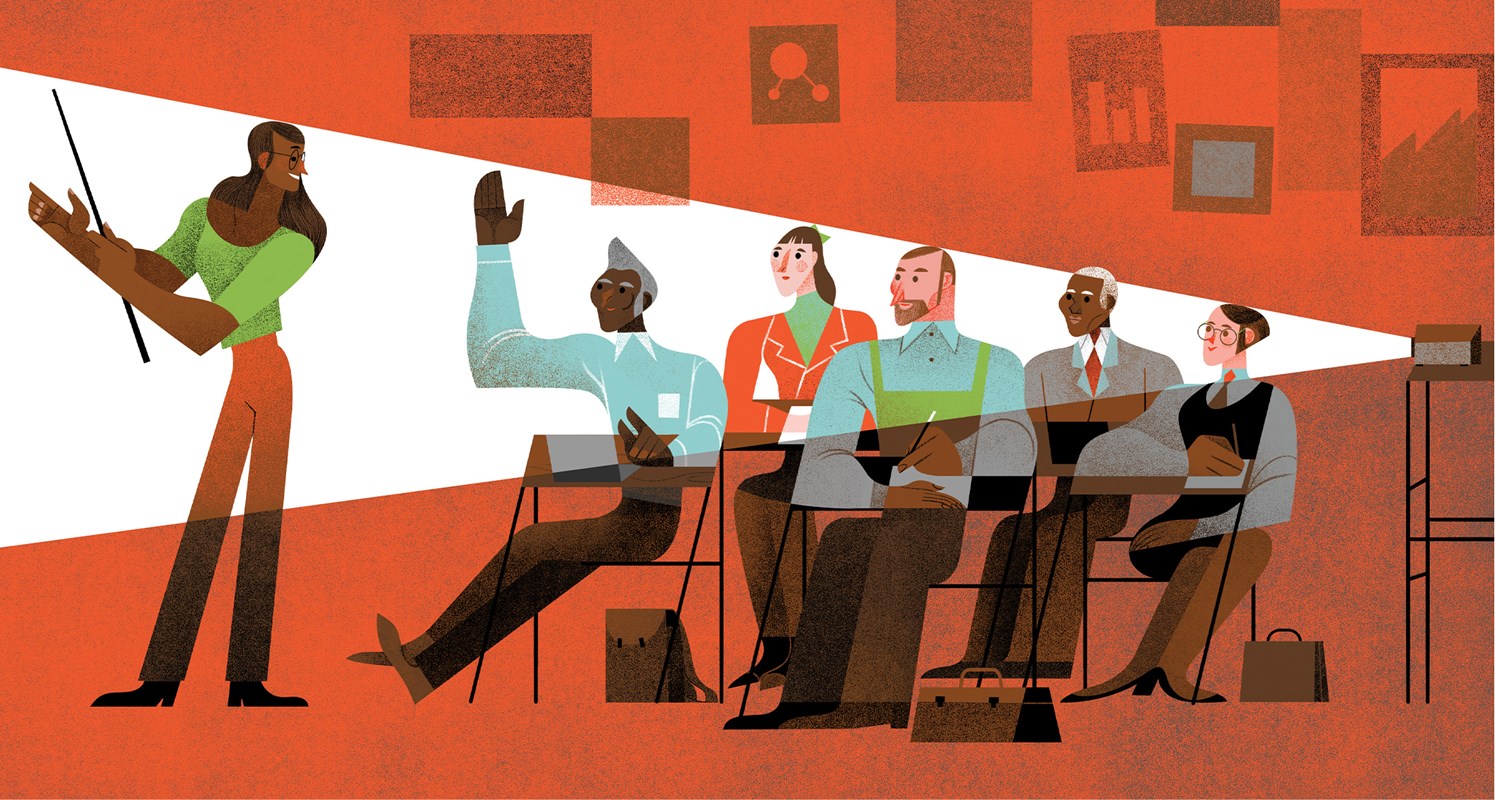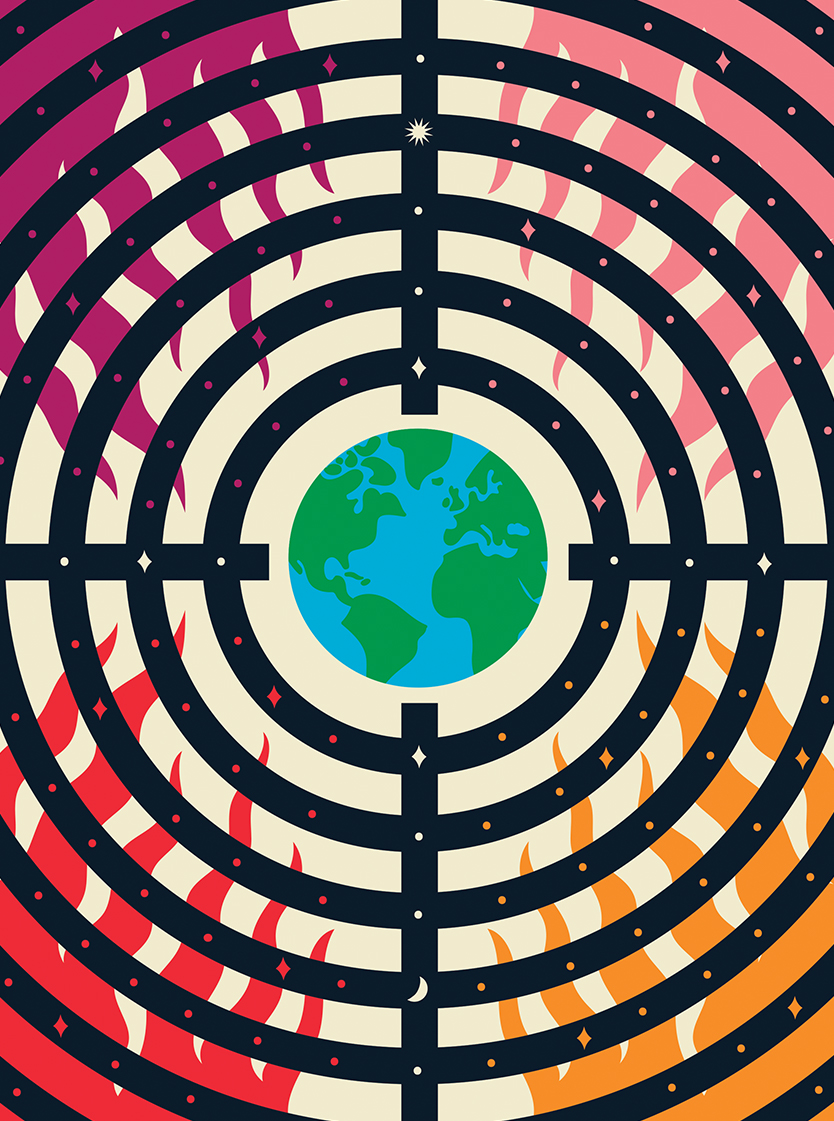shaping the 4.0 world for everyone
By Joe Kaeser

Cecilia Puglesi

Making the 4.0 world inclusive so that it benefits the whole of society is an urgent task ahead of us, writes Siemens’ president and CEO Joe Kaeser. But increasing global connectivity means governments can’t do it all alone, and they will need multinational corporations that are not constrained by geography to help.
We live in exciting times. Industry is undergoing the Fourth Industrial Revolution. The real and virtual worlds are converging, allowing goods to be produced at unprecedented speed and flexibility, as well as at unmatched levels of resource efficiency. Such capabilities are fundamentally changing the world. Humans will increasingly work with AI-enabled machines and systems that can perform most tasks better than we ever could. There is no getting around the fact that we live in a ‘4.0’ world.
There are plenty of technology enthusiasts who paint an idealistic picture of the digital and virtual worlds. Meanwhile, the potential impact of the Fourth Industrial Revolution on our societies hasn’t been discussed nearly enough. Advanced technologies, and the corporate giants driving them, risk leaving many people behind — a trend that could intensify over the next decades in developing and industrial economies alike. Too often, digitalisation works in a binary way: the winner takes all. Consequently, making the 4.0 world inclusive is an urgent task. If digitalisation and globalisation produce more losers than winners, we will all suffer the consequences. The question is: who is in charge? And who should take responsibility for the good of society?
“the potential impact of the Fourth Industrial Revolution on our societies hasn’t been discussed nearly enough”
Joe Kaeser

Governments certainly have a role to play, and they should invest in infrastructure — both digital and conventional — as well as in schools and universities that have a focus on digital education. After all, innovation in future fields, such as artificial intelligence, is powered by our most valuable asset: educated human beings.
But governments can’t get the job done on their own. The 4.0 world is characterised by increasing global connectivity, value chains that transcend political boundaries, a flood of new digital technologies, and the global use and misuse of data and social media. Multinational corporations should help lead the charge. Unlike governments, they are not limited by geography.
In the 1970s, Nobel Prize Laureate Milton Friedman defined an attitude that dominated an entire era: “The business of business is business”. In other words, companies have an obligation to their owners, and don’t need to worry about anyone else. The idea is that eventually society will benefit from higher profits and increased shareholder value. However, society no longer accepts this limited perspective. Profits will always be a precondition for economic strength. But strength is not an end in itself. Companies that drive positive change will discover their deeper purpose, beyond the narrow shareholder principle and toward an all-encompassing stakeholder approach. This approach can best be phrased in the words: the business of business is to serve society.

Corporate leaders should actively promote what I call ‘inclusive capitalism’. There are many ways a company can serve society. For Siemens, our Business to Society starts with a company’s core business. We ask ourselves: do the products and services we provide contribute to a better life? Do they support the fight against climate change? What is our contribution to energy security and clean water supplies? How can we help patients and doctors find better treatments? How can people move from A to B in a sustainable, efficient way? At Siemens, we pride ourselves on making real what matters.
Beyond the core business, companies should also provide their workforces with continuing education. McKinsey estimates that by 2030, up to 375 million people will have to learn a new profession. Lawyers, doctors, and engineers will be affected by digitalisation as much as blue-collar workers. The 4.0 world will test the fabric of society across the board. To pass the test, we need an educated workforce. That’s why Siemens invests more than €500 million per year in the training and education of its employees. In addition, we have earmarked €100 million for improving the prospects for those whose jobs are being threatened or eliminated by the digital transformation.

Business to Society also means that companies should participate in debates on the fundamental values that govern our communities. As the CEO of a German company that contributed to the injustices of the Nazi regime, I am alarmed when arguments are made in favour of exclusion. I believe that xenophobia, antisemitism, and all forms of discrimination are threats to thriving, open, and interconnected societies. We all have a responsibility to speak up, and here, companies should lead by example. At Siemens, 171 nationalities contribute to the success of our business. This diversity makes us proud, and we also stand for this in the public sphere.
The Fourth Industrial Revolution is full of opportunities. But we have to shape the 4.0 world in ways that are beneficial to all of society. The companies of the future, as well as their leaders, will have to walk a fine line between economic performance and social integration. I am convinced that this is the only way forward. Let us all make real what matters.








